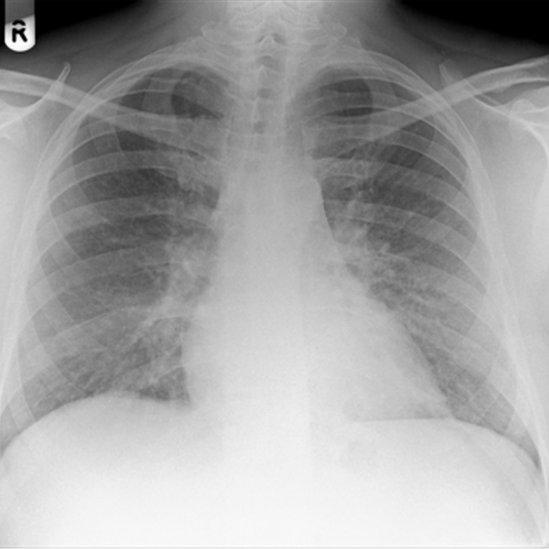Aberdeenshire man gets 'bird fancier's lung' condition from feather bedding
- Published

Martin Taylor started feeling dizzy and fatigued after swapping synthetic bedding for feather-filled pillows
A 43-year-old man from Aberdeenshire has told how he developed a potentially life-threatening lung condition after buying feather-filled bedding.
Martin Taylor was referred to respiratory specialists after three months of fatigue and breathlessness.
The non-smoker was eventually diagnosed with a hypersensitivity pneumonitis, or feather duvet lung (FDL).
The condition is caused by breathing in organic dust from duck or goose feathers found in duvets and pillows.
Mr Taylor told the BMJ medical journal, external that, at his worst, he could only stand or walk for a few minutes without feeling as if he was about to pass out.
He was signed off work in November 2016 and managed to do little more than sleep all day.
Dizzy spells
He said: "I started getting dizzy spells on exertion. There was a rapid decline in my health and the lack of a diagnosis after four appointments at the GP surgery was extremely distressing at the time.
"Two months after the onset of the symptoms...going upstairs to bed was a 30-minute activity as I could only manage two stairs at a time and then needed to sit and rest."

A chest radiograph showed shadowing around Mr Taylor's lungs
Mr Taylor was referred by his GP to Aberdeen Royal Infirmary. And he said his condition started to improve as soon as he was diagnosed with FDL - also known as bird fancier's lung - and told to get rid of his feather duvet and pillows.
He said: "The steroids which were prescribed after diagnosis had a transformative effect within two days.
"At the same time, having assumed that a possible cause of the allergy was feather bedding, I replaced them with hypoallergenic bedding.
"The course of steroids continued for 12 months, with a gradual reduction in dose over time. I have thankfully been able to stop them completely."
Mr Taylor added: "My oxygen saturation level nowadays is regularly 97%-98% which I understand to be normal for someone my age, and I have not had any dizzy turns since recovering.
"It doesn't affect me at all now and my life is pretty much as it was before."
Lung shadowing
A BMJ report on Mr Taylor's case was compiled by Dr Chris RuiWen Kuo, from the department of respiratory medicine at Aberdeen Royal Infirmary, and Dr Patrick Liu from the Victoria Hospital in Kirkcaldy.
It told how they were alerted to the possibility of bird fancier's lung after a chest radiograph earlier reported as normal showed "ground glass shadowing" around Mr Taylor's lungs.
The report said: "Although he had no pet birds, on closer questioning he had recently acquired a duvet and pillows containing feathers.
"His symptoms, chest radiograph and lung function tests improved after removal of all feather bedding, and he was also started on oral corticosteroid therapy.
"Our case reinforces the importance of taking a meticulous exposure history and asking about domestic bedding in patients with unexplained breathlessness.
"Prompt recognition and cessation of antigen exposure may prevent the development of irreversible lung fibrosis."